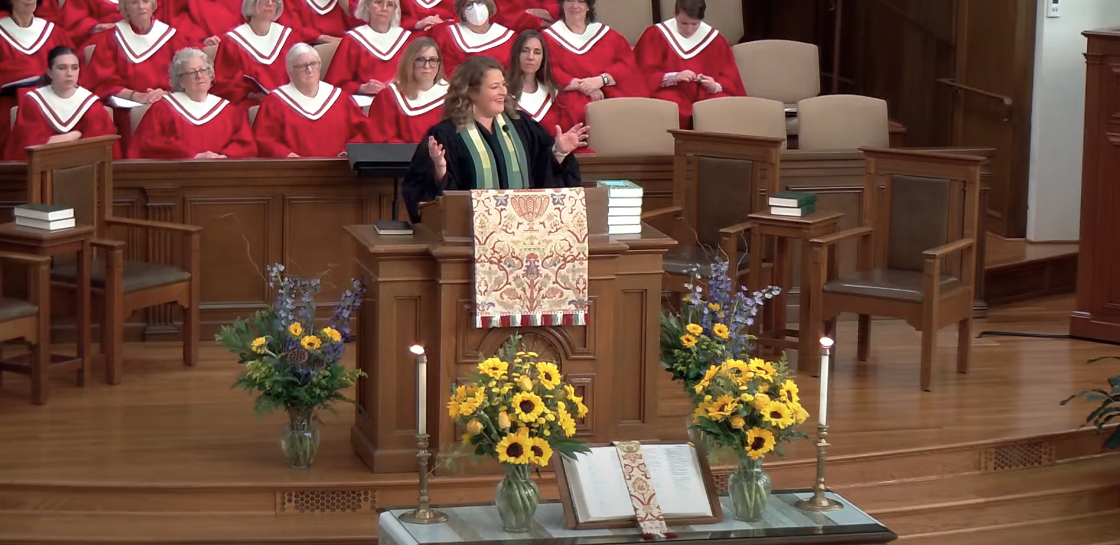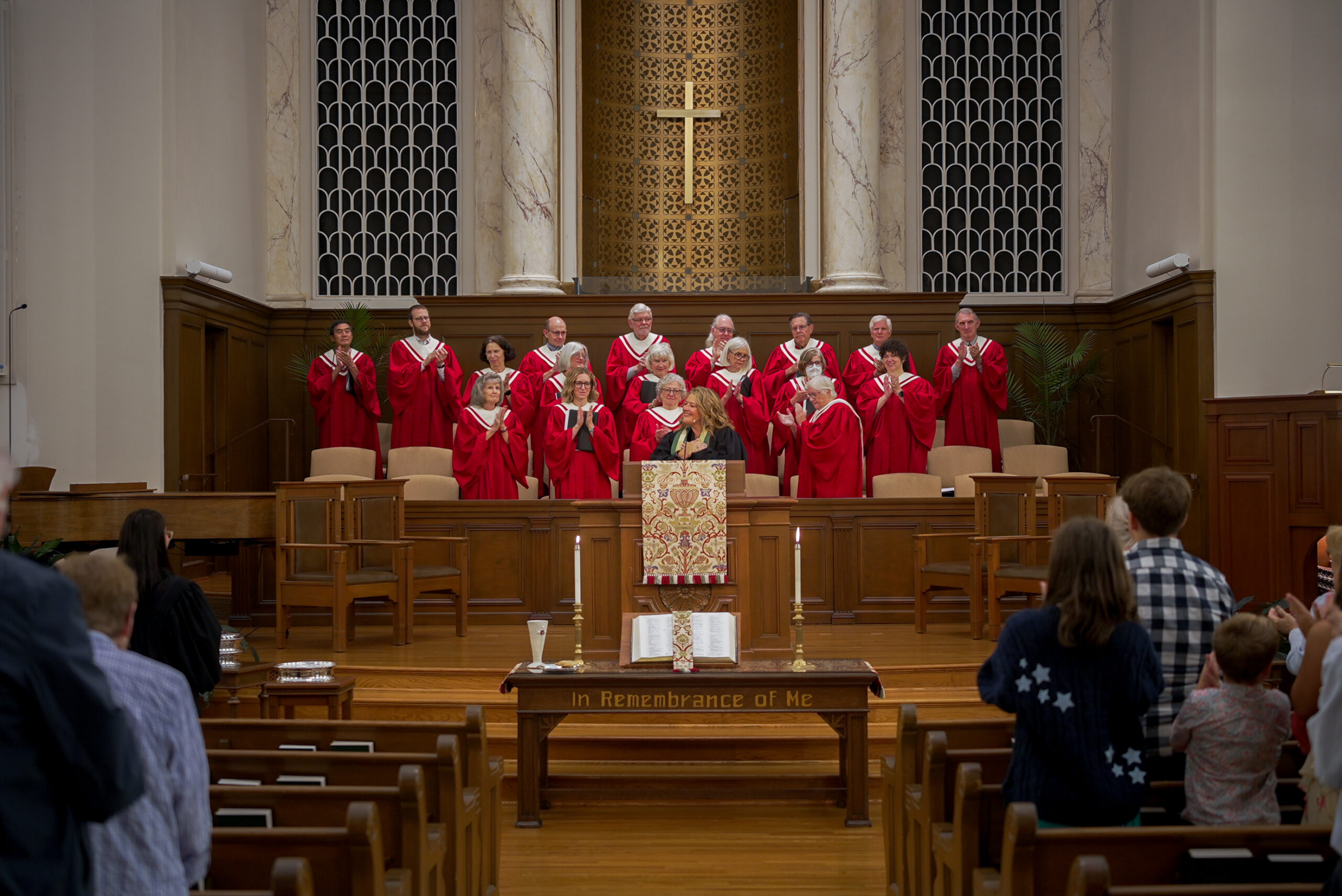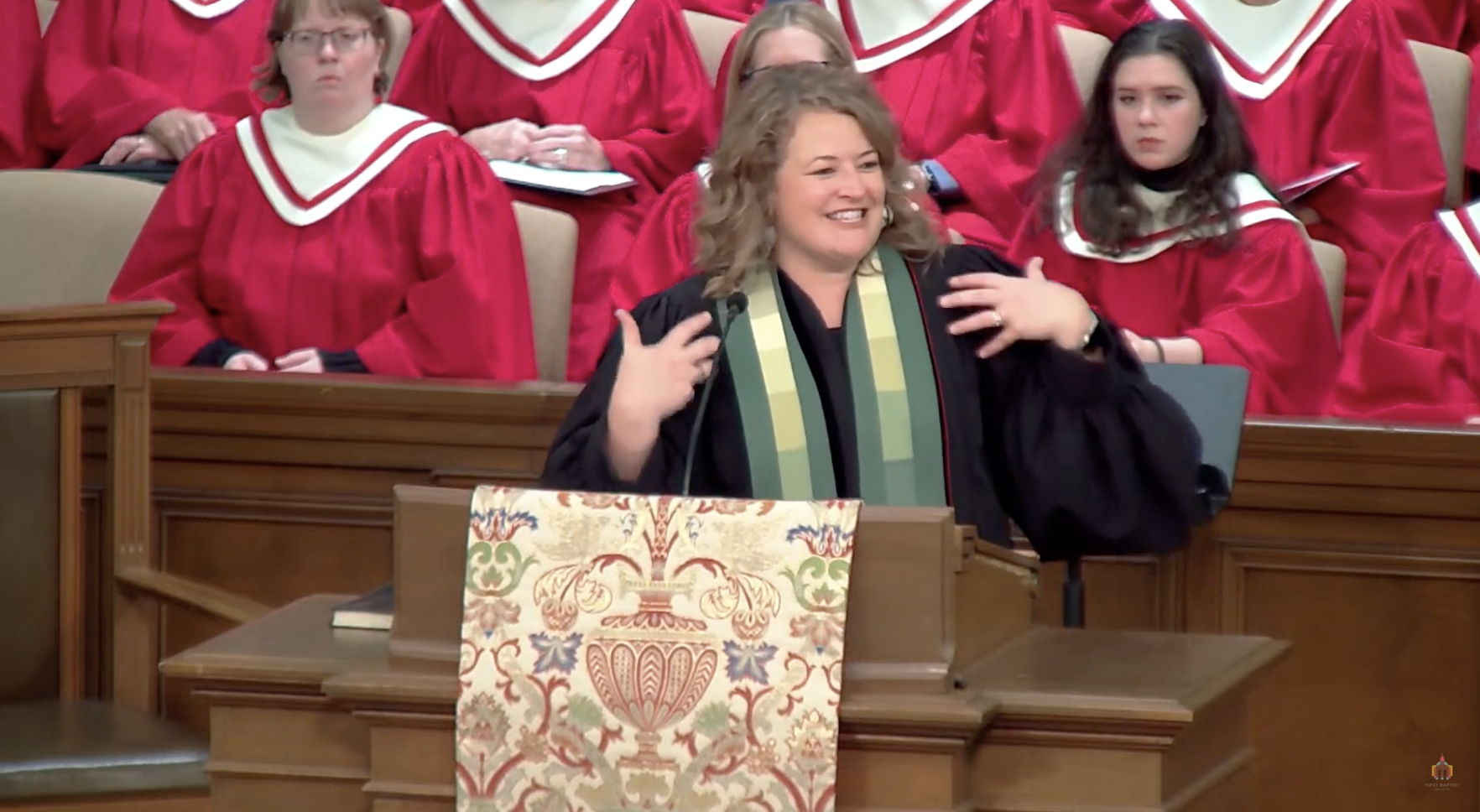Have you ever had a letter that you go back to from time to time? That shoebox of old cards. Maybe it’s from a loved one who has passed away, or maybe it’s from a mentor or old friend. Or maybe it’s an email folder- one you sort emails into so you can find them easily? Maybe it’s a saved voicemail or text thread that you refuse to delete even when your phone is running low on storage. You return to it time and again when the time is right.
Whatever the form may be, physical or digital, I bet you know what I’m talking about. It’s that string of truth someone gave you when you needed it. It bolsters you as you go about your days. Sometimes, when you’re in an especially hard spot, It’s that letter, or email, or text that you can read to remind yourself that even if you are not feeling particularly inspired, or good, or successful, there is someone who knows you and loves you, someone who sees you and has encouraged you- for the work you have done – for the person you are in the world.
These types of mementos act as steering devices for us, don’t they? In our lives broadly and often in our lives of faith. We remember that note about our gifts, or that counsel in a time of need, we hear the feedback in times of decision and the wisdom in times of discernment. As we learn and grow, and learn and grow these words become almost like liturgy, prayers working in and through our lives, shaping us, and reminding us of who we are, and who we can yet become. They give us hope that there is someone else with us, in presence or spirit, that we can return to in these letters to guide us back to the way we want to be in the world.
We have been in the world of letters this summer. We’ve journeyed for the past four weeks through Galatians and considered the ways in which freedom is integral to our life of faith, freedom to believe, to interpret, to band together, to bear with one another through our lives. And now, as July moves us onward we follow the lectionary from Galatians into another epistle. This letter to those “faithful saints and siblings in Colossae”, shifts our focus from the freedoms of a christian life, to the fullness of it when chosen and lived out.
I wonder what the consideration of a “full” life evokes for you? Does it conjure images of full schedules, the “grind”, successful careers, hustle and bustle and weeks packed to the brim? Does it bring up memories of full tables, or holidays, laughter in abundance or annual beach trips with family and friends? Or perhaps even thinking of the word full makes you feel sick to your stomach, you’ve been there or you are there- over-extended, unsure of how to keep all the plates spinning, full of deadlines and due-dates, and no end in sight? We in American culture are no stranger to full, or even over-full, lives.
As one trying to unlearn such a “grindset” I often have to return to an affirmation I have written by a professor in college that reminds me of another way to experience the fullness of life. This particular affirmation says “Olena will not fill her 5 gallon bucket with 10 gallons of water just because she can. Grace and grasping life’s beauty, now are better choices.” Can you hear the offering there? The space for another understanding of a “full” life? It’s a move from filled to full. It’s a shift in understanding of what is important.
As we hear our scripture today and will continue to hear over the next few weeks, we begin a letter that also creates space to understand what constitutes the fullness of our lives. We hear the author’s encouragement weaving this one small, local community into the story of this cosmic Christ who holds all things together. Within these classic structures of an ancient letter, we hear, first, who the authors are, purportedly Paul and Timothy, and then the authors make two moves.
First, they notice and call out the ways the community is already abounding in fruitfulness. They set the tone of the letter and call out some characteristics of the people they are writing to saying we see this good work you are doing, we hear of your love for all, rooted in hope, and overflowing. And then, there is a prayer for the ways in which the community can continue to grow- not in number, or budget, or event schedule- but in knowledge and wisdom of God, of the gospel revealed in Jesus Christ. There is space made to both affirm and give thanks for what is already at work and encourage the community to continue living in this way, “fully pleasing to the Lord” they say “bearing fruit in every good work and growing in the knowledge of God.”
Hearing this – I wonder what is conjured if we shift our focus slightly-What does the consideration of not simply a full life, but a “fully pleasing” life look like? Does this bring up some people-pleasing instincts in you? Is it fraught with shoulds and coulds and woulds? Does a fully pleasing life consist of perfection, a checklist of how things must be before we please God or one another? Maybe you’re asking – really? Can we even ethically consider a fully pleasing life in the current social, political and economic realities we are living? Is there any hope at all that we really might be able to live a life pleasing to God and responsible to our neighbors, all while paying our bills?
If we are being honest – and we can be honest here – it is hard to be hopeful right now. These days are hard. We hear it in our news cycles, in our prayers, on our social media feeds, at our coffee dates and book clubs, at the gym or the grocery store, it can feel inescapable. All the negative realities, as if we’re in one of those action movies and the walls are closing in all around us while we try to crack the code to get out.
And yet, almost inexplicably, summer’s abundance came again this year. Each morning I find myself amazed as seemingly against all odds, my garden boxes boast tiny green tomatoes, peppers and cucumbers that surely had to appear overnight. And no matter how many summers this happens, the fact that something sustaining can grow from nothing but a weedy pile of dirt feels miraculous.
In a life that holds wars and violence against our neighbors in one hand and splash pads and birthdays in another, What does a fully pleasing life following in the way of Jesus look like? As we move through our summer living, water our gardens, harvest the produce- as we take annual trips to the beach or the mountains- as we bask in the long summer evening and savor the fireflies at dusk – the beauty and wonder of these days can feel almost contradictory to the hurt and hopelessness found in so many corners of our reality. In a world that offers us a free buffet of despair daily, hope can feel almost irresponsible, privileged, empty.
But hope isn’t simply a wish for things to get better- we know such false optimism falls short of carrying us through trials and heartache. Hope isn’t just an gritting of the teeth through the storms of life, where it’s a flip of the coin who will make it out the other side. No – Hope is different. It’s different from wishing or optimism or the power of positivity. Hope is revolutionary – we see it in queer history, the civil rights movement, latin american liberation theology- in all places where the possibility of paralysis was legitimate and logical for the forces of oppression were powerful and overwhelming, and yet, people knew the truth and believed in the possibility of liberation – even if they did not live to see it. The fact that I am standing here in front of you preaching a sermon from a pulpit in a Baptist church is a testimony to the hope and commitment to truth that those who have come before us have exemplified.
Emotionally, psychologists tell us, hope is “a sense of trust, of caring and being cared for that comes from the outside and is based on relationships and being connected to the world and life.” It is in resisting the turn inwards, that guise of the freedom from worrying about my neighbor, that guise of prioritizing our own comfort at the expense of others,- it is in resisting that turn that our hopes can move beyond such a hollow, self-centered desire for comfort, and instead overflow in solidarity for the world. This sturdy, responsible kind of hope moves us beyond just feeling or thinking and becomes an active, multidimensional practice that requires both the collective and individual, both a community of support and solidarity, and a willingness to own your own agency, to take action in light of the call of truth.
We know this move. We have seen it in our own community. Like those two moves of the letter let me acknowledge the bold love I have heard that you have for all people, within and beyond your immediate community. Overflowing in words, actions, volunteer hours, coffee dates, pride parades, tutoring sessions, and prayer calls, and cards written and ramps built, and food cooked… I have heard of your hope for this world, for this community, rooted in your knowledge that God’s love knows no boundaries, and I have seen the fruit borne of it.
And like those two moves, we acknowledge that the work of bearing fruit, of living fully pleasing lives, of Walking in the way of Jesus Christ is not something that is accomplished one time, most intent on securing an ethereal afterlife. It is something that we choose again and again, praying for the wisdom and growth and guidance to stay alert to the leading of the spirit of truth and life in our very midst, that we might feel the equality of heaven not just some day far off, but right here around us.
When it all feels too much, we can be held in the knowing that none of us must do this work alone. When I need reminding of who, in community, I feel called to be – I often return to another sort of letter to help me remember amidst all going on, this shared hope that is possible and in fact already at work.
Let me read for you a few excerpts from this:
“We believe that the truest story we’ve ever known is the story of God who so loved the world. The overflow of God’s love for us and our love for God takes a particular form in our local congregation.
“We have continued to change. We are imperfect, yet hopeful travelers who choose to journey together with God throughout the seasons of life.
“We understand calling to be a summoning to a particular way of life. And because that calling comes from Jesus, we are beckoned to a Jesus-shaped way of living: one of loving God and loving neighbor as we love ourselves, all the while pursuing the present and future kingdom of God.
“We believe that our efforts to follow Jesus are never perfected, only practiced. The truth is that no matter who we are, all of us are struggling and starting over, figuring things out and finding our way again. Thank God for the grace that comes with each new day!
“We practice because we’re learning to be more honest than we are and more loving than we have been. We practice not out of a sense of burden or duty, but out of joyful responsibility to God and each other. We practice because it’s in daily living — of actually doing the things that shape and form us in Love over and over again — that these seeds take root.
“Our love for God and neighbor calls us to welcome, affirm, and celebrate all people in the fullness of who they are.
“We seek to practice boundless compassion for all people by lifting the lowly, caring for the poor, pursuing and amplifying the voices on the margins of life, calling out injustice wherever we see it, extending our care for all of God’s creation, and working for the freedom of the oppressed. Our boundless compassion flows outwardly to our neighbor and inwardly to ourselves, for each of us is in need of God’s liberation from all that holds us captive. As scripture teaches us, “we are members of one another.” In our belonging, we bear each other’s burdens and hardships, so that in mutual love and shared suffering, we all may be set free.
“Yes, sometimes it’s messy, and yes, sometimes we disappoint each other. But because we know the sting of loneliness and the salve of belonging, we are choosing to knit our lives together, time and time again.”
Imperfect, yet hopeful. Practicing daily,walking in the way of Jesus, overflowing in God’s boundless love and compassion inwardly and outwardly, making space for liberation, honesty, love, and belonging. Choosing to knit our lives together, again and again.
If these words sound familiar it’s because they are your words. They are our words. For each one of us who says I want to be a part of this beloved community, they become your words. Our shared confession of identity is both an affirmation of who we are together, and a prayer for who we might yet become. Wrapped up in every line we hear shared hope in the wide open love of God as motivation for our commitment: to right action and to responsibility. And as we grow in the knowledge of our belovedness, it pours out in everything we do.
What does it mean to live a fully pleasing life? I think of our banners out front, Do Justice, Love Kindness, Walk Humbly. What does it mean to live a fully pleasing life? It means a commitment to choose over and over again, to hope actively, root into community, to care against all the sources in our world that tell you caring is meaningless. What is a fully pleasing life? It is a life full of the miraculous love of God, given and received over and over again. So as we go about our daily lives – maybe you pull out some of these old letters, or texts, or emails. Remind yourself that you are not alone. Or, maybe, you write someone a note- to remind them that they are not alone. It is through these reminders, through our daily choices to knit ourselves into community, that we walk in the way of Jesus, fully pleasing, fully loved. Amen.








